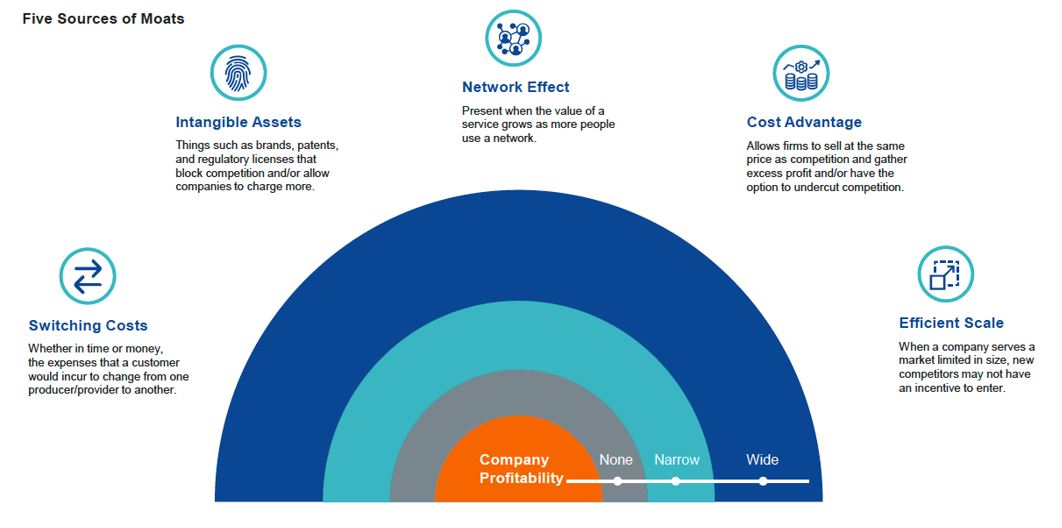VanEck Morningstar US SMID Moat UCITS ETF
- Potential for outperformance over time
- Diversifies risks in your portfolio
- Invests in the United States, with the largest universe of small and mid-cap equities
- Targets quality companies with reasonable valuations
- Main Risk Factors: Equity market risk, risk of investing in smaller companies


